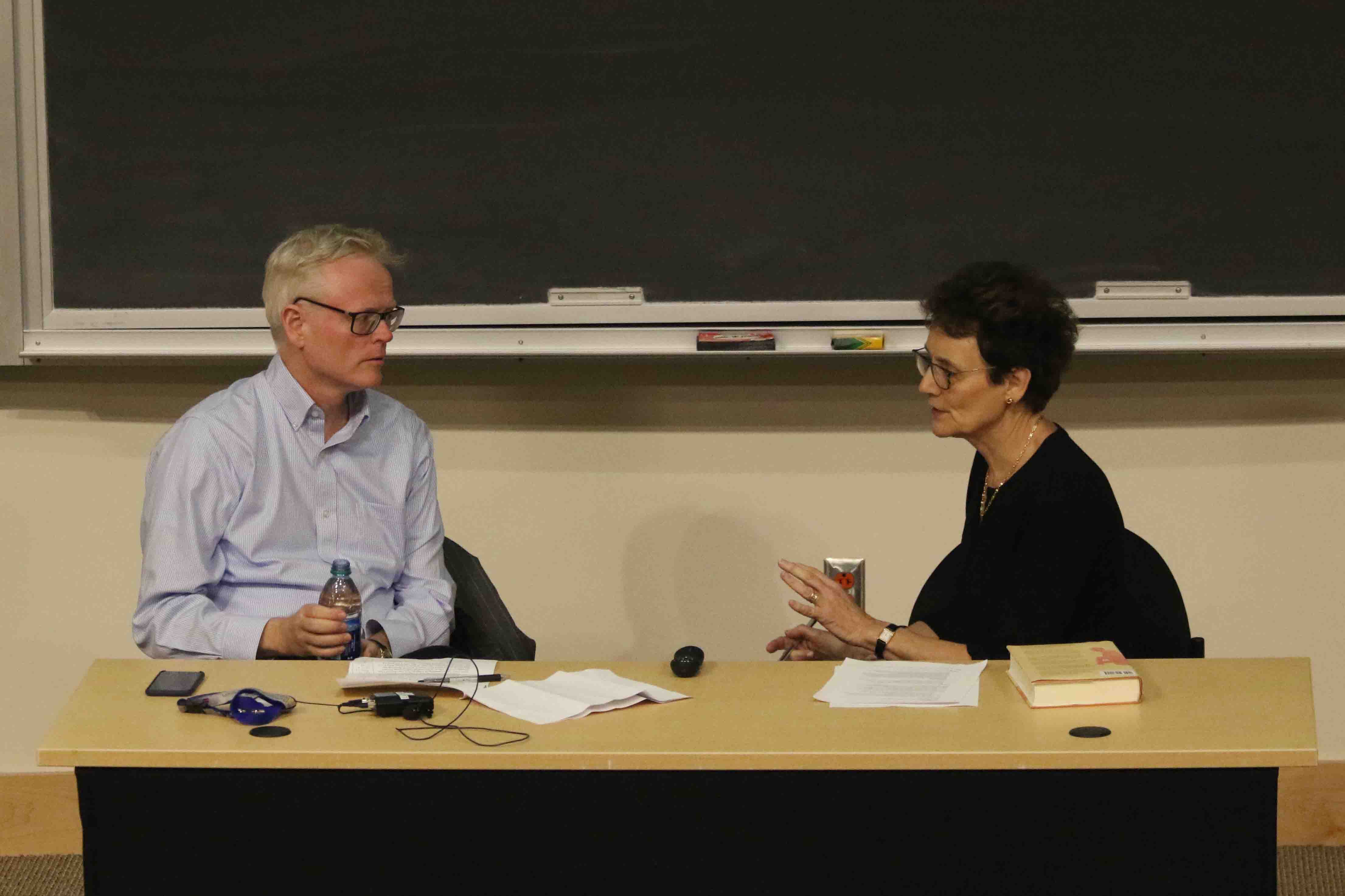
In recent years, China has seen a surge in religious activity, with millions of Chinese citizens turning toward folk religions, Buddhism, Daoism, Christianity and other forms of spirituality. Journalist Ian Johnson, who won a Pulitzer Prize in 2001 for his coverage of religious suppression in China, argued at a talk at Luce Hall on Monday that the country’s recent religious revival is a result of its economic transformation from an impoverished nation to an industrial superpower.
Johnson, who was invited by the Poynter Fellowship and the Council on East Asian Studies at the MacMillan Center, recently published a book, The Souls of China, which chronicles his experiences with religious groups around the nation and sets out to explain what he views as a search for meaning in a society racked by change. Johnson spoke before a crowd of about 50 students and faculty Monday about this six-year venture.
“I’ve been thinking about writing this book for over 30 years, since I first went to China in 1984,” Johnson said. “I had gone to China to learn Chinese and look at this country that was just opening up.”
During China’s period of economic reform, foreign media mostly focused on the nation’s rise as it joined the World Trade Organization, hosted the Olympics and came into the world as an economic superpower, Johnson said.
However, he explained that these global perceptions failed to accurately represent the national sentiment at the time.
“For many Chinese people, I think China was already entering a newer era, an era of uncertainty and anxiety,” he continued.
At the start of the 21st century, Chinese citizens’ excitement about their massive gains in material wealth began to fade, Johnson noted. As scandals about tainted food and political corruption hit the country, Chinese people began to question cultural values, he said.
At the same time, China’s economy was soaring and rates of urbanization were picking up. Racked with uncertainty about the grounding of their society, moving from agrarian lives with familial and community support to big cities, some Chinese citizens began to see religion as a means of adjusting to a more complex world.
“What religion is for a lot of people in China is a way to recreate community,” he said. “People are moving to these big, anonymous cities, and they feel that they lack something. These religious communities, whether they’re Christian or Daoist or Buddhist, in some way help recreate structure.”
Even before the Chinese Civil War and Communist era, “indigenous” religions like Buddhism and Daoism came under attack from some elements of Chinese society as backwards superstitions that were preventing the country from progressing. Later in the 20th century, Mao Zedong’s harsh, anti-religious policies and the Cultural Revolution nearly exterminated all forms of religious worship in China.
Johnson said that during his first trip to China in 1984, he visited a Daoist temple in Beijing. But by then, the government’s religious crackdown had left the temple almost empty.
“It seemed almost like a museum that you might find in a Communist country to a sociological phenomenon called ‘religion’ that had subsequently been destroyed,” he said.
Yet, upon returning to China a decade later, Johnson found the country’s religious landscape transformed. As China’s economy took off, donations began to flow into the rebuilding of temples, he said. In the late 1990s, this revival manifested itself in the qigong spiritual movement, which has origins in Daoist and quasi-medical thought.
Johnson also described the gradual shift in the Chinese government’s attitude toward religion. Although the state cracked down on qigong groups in 1999, current Chinese president Xi Jinping accelerated a change in domestic policy that focused on religion’s cultural place in society.
“The government began to push traditional ideas and values, especially the so-called ‘indigenous’ religions: Daoism, Buddhism and folk religious practices,” Johnson said. “The government has adopted a term from UNESCO — ‘intangible cultural heritage’ — and has begun to support these practices, many of which have a spiritual component.”
UNESCO stands for the United Nations Educational, Scientific and Cultural Organization.
Li Fei, an exchange student from Tsinghua University in Beijing who attended the talk, agreed with Johnson’s assessment that China’s religious revival found roots in its rapid economic development.
“We’re pursuing wealth, but we do have this spiritual vacuum,” she said. “China is experiencing a spiritual phase, where everyone is moving from seeking wealth to seeking spiritual comfort.”
Chloë Starr, professor of Asian theology at the Divinity School, concurred that the Chinese government is moving from shunning religion to taking advantage of its utility.
To finish his talk, Johnson related a story from his book about a Chinese friend gifting a jacket to him and what the gesture meant.
“That idea of passing it on, I think, is really crucial to people [in China],” he said. “They really feel that this past century and a half was so traumatic, people want to bridge that [through traditions], to make whole what was broken.”
Johnson teaches at the Beijing Center for Chinese Studies.
Will Wang | will.wang@yale.edu







